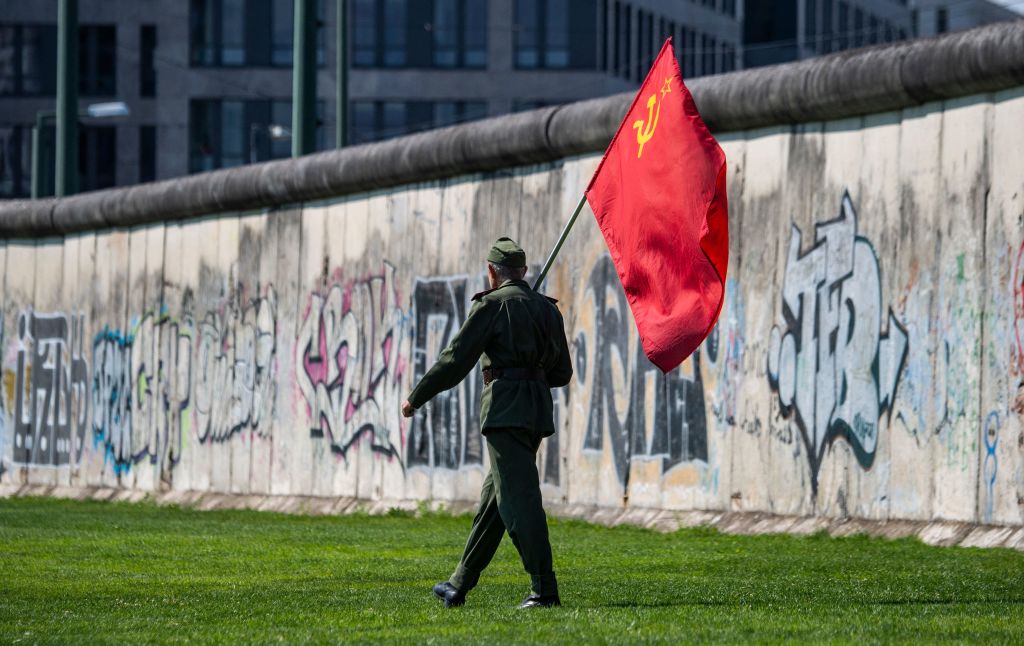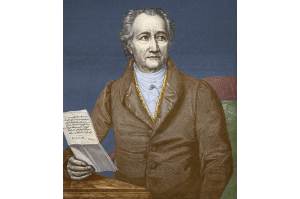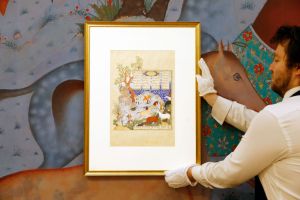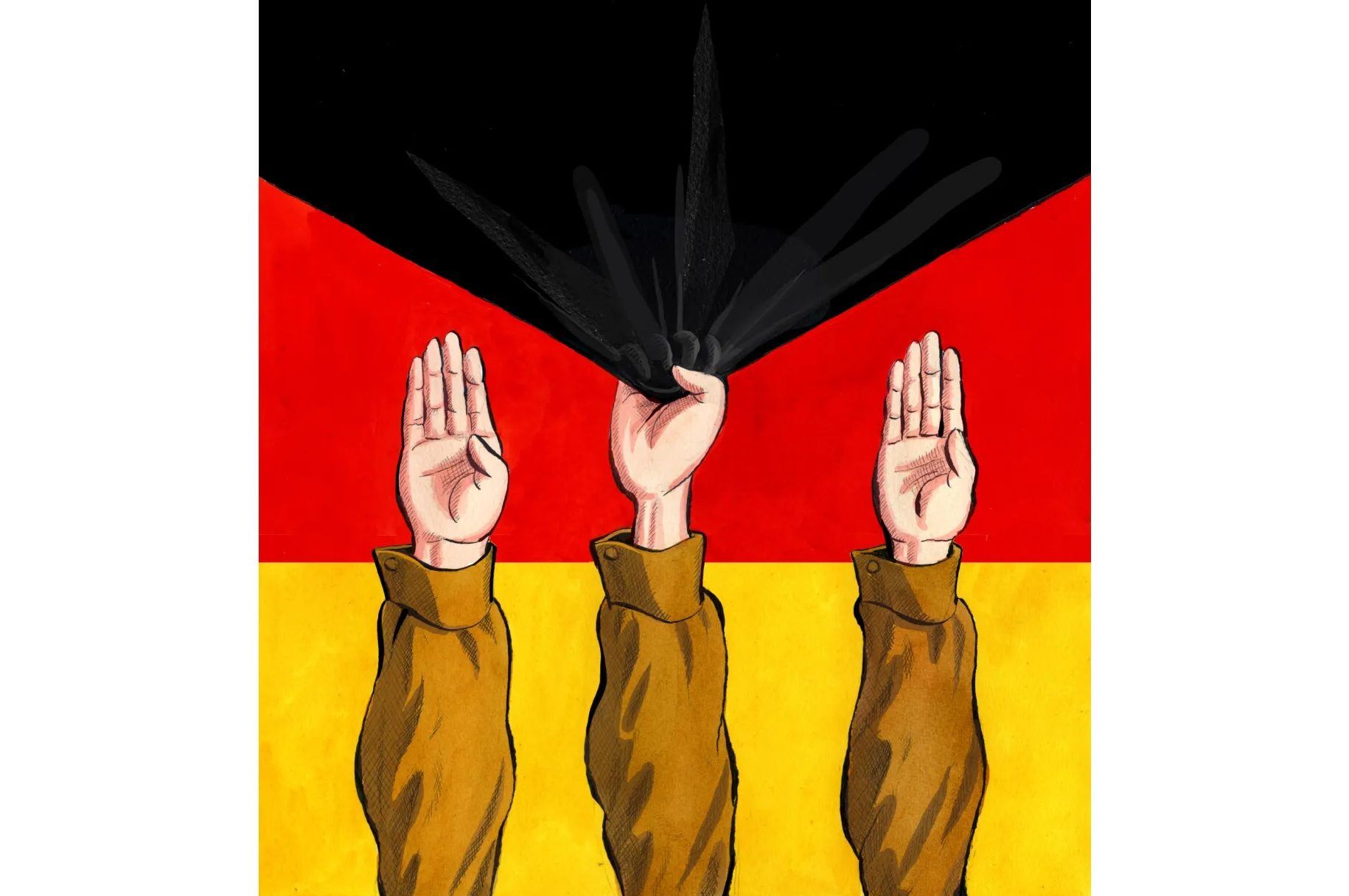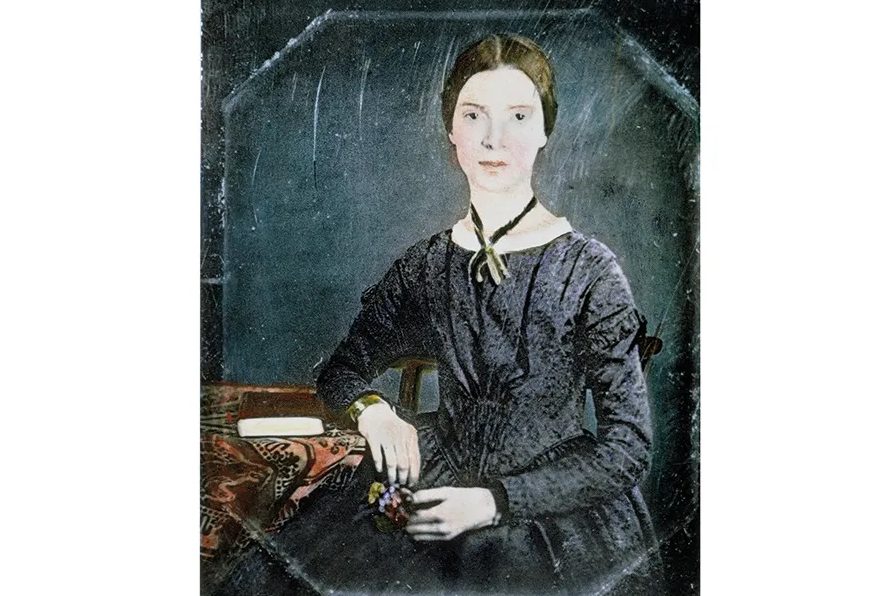Readers of The Spectator World probably think they are quite au fait with the culture wars. J.K. Rowling, Joe Rogan, even Dr. Seuss — writers and celebrities who have been canceled quickly roll off the tongue.
But what if “cancellation” had more dramatic implications than just a Twitter account bursting with notifications?
In 1975, the unpublished poet Annegret Gollin encountered a rather different kind of culture war: she was arrested at a music festival and told that she could either spend two years in a prison cell or become an informant for the Stasi. Gollin chose to become an informant, but was a brilliantly ineffective one — she told over a hundred of her friends that she was supposed to be spying on them — and she ended up in prison seven years later. After her incarceration, her son was taken from her, and her partner died under suspicious circumstances.
Welcome to the topsy-turvy world of writing in East Germany. Gollin was a rebel against the formal constraints of the GDR: she refused permanent employment, preferring the freedom of hitchhiking and music festivals. But for the Stasi who arrested her, her true crime was her writing. Gollin had written poetry since she was very young, and her notebooks were seized upon her arrest.
One of the incriminating poems was a meditation on the concrete prefabricated flats that had been built in Neubrandenburg. Arranged in two blocks of text that are mimetic of the tower blocks they describe, Gollin’s speaker declares, “I see concrete to my left. / I see concrete to my right,” before ending the poem with the three lines
I think concrete.
I become concrete.
(That’s not just the case in New York City.)
The subversion is not just the implication that socialist architecture produces stultified, stagnant thought, but the fact that — until the very last line — this could be read as a tirade against the modern, capitalist, towering structures of the USA. Gollin removed one level of poetic ambiguity, and paid for it with her freedom.
Writing in 2022, and in a country where free speech is just about secure, it is hard to see how poetry could lead to incarceration. But in the GDR, writers were not individuals scribbling their novels, essays, or poems — they were members of the Literaturegesellschaft, or “literature society.” The GDR aimed for sky-high literacy rates and made libraries compulsory in factories and workplaces. Between 1950 and 1989, the number of books and the proportion of those books that were fiction tripled, even as the population declined. Even the form of the sonnet — with its octave, sestet, and volta — became a perfect model of the Marxist dialectic: thesis, antithesis, and synthesis.
The founders of the socialist state wanted no division between those who worked and those who wrote for their bread, but this also meant that the poetic and the political had to become one and the same.
It’s this fusion of politics and poetry that Philip Oltermann takes as his theme in The Stasi Poetry Circle. At the center of Oltermann’s analysis of writing and reading in the GDR is a group called the Working Circle of Writing Chekists — the Stasis’ very own Dead Poet’s Society. While Annegret Gollin was spied on and arrested for her writing, this group of secret police-turned-bards met under the shady figure of Uwe Berger to read out their poetry and critique it.
In an age of nuclear missiles, a divided Berlin, and gun-manned checkpoints, it is hard to believe that poetry was seen as a weapon no less important than its atomic counterpart. The Working Circle of Writing Chekists was not a group to censor and prevent the publication of texts — although such an arm of the government evidently did exist — but a bona fide creative writing class.
The poems Oltermann quotes range from the strikingly socialist realist (“Phones ringing, teletypewriters chattering. / Tired yawns, but excited concentration”) to the subtly subversive. In their striking clarity, these four lines hint at a meaning beneath their politically acceptable facade:
I have been empowered
to delegate power
That has to take me into account.
This makes me mighty
Oltermann meticulously traces the importance of literature and literacy in the GDR from the start of the Cold War to the fall of the wall. Alongside the efforts of the secret-police poets, he chronicles the creative efforts of other citizens — how their work made it through the censors, and how it was received. One epic poem by Uwe Kolbe made it through the Culture Ministry without hitch, only for the officials to realize after publication that an anti-government message was encoded in the first letter of each word.
Amidst the horrifying tales of espionage, informing, and brutality, Oltermann identifies something special in the GDR’s commitment to literature. The men of the Stasi poetry circle were the strong arm of a totalitarian regime, but there is something comical and touchingly idealistic about imagining them reading aloud their love poems, their rhyming couplets, and their metaphors about a perfect socialist state.
Oltermann’s book is one of a handful to be published about the GDR in recent years, from Philippe Sands’s East West Street (2016) to Anna Funder’s Stasiland (2002). Oltermann’s approach is more Death of Stalin than it is heart-wrenching memoir, but it is moving, scholarly, and — aptly — poetic all the same.
After the fall of the wall, the members of the Stasi poetry circle became caretakers, taxi drivers, archivists, and tax advisers. One committed suicide, and another has dedicated the rest of his life to studying Martin Luther. It is tempting to be swayed by the idealism of a state that made poets and writers out of industrial workers and soldiers, but it is impossible to separate this creation from the corresponding control and repression. Perhaps our contemporary cancel culture isn’t so bad after all.



